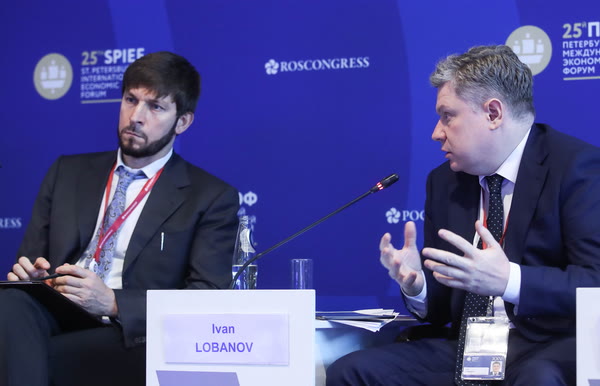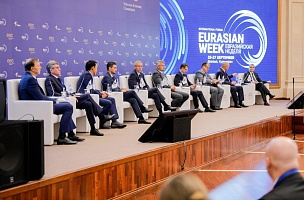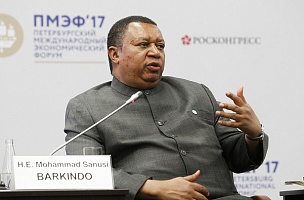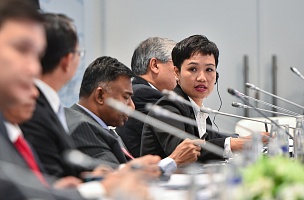Key conclusions
Russia Must not Deviate from its Sustainable Development Goals Regardless of External Circumstances
“As a responsible state, the Russian Federation has no intention of withdrawing from the Paris Agreement. We knew what we were doing when we joined the Paris Agreement, we had done our homework beforehand, there was a big round of negotiations with the business community and with public figures. […] Since we have a responsibility to future generations to combat climate change, we will not allow ourselves to play the games that some other states have in accepting the Paris Agreement and then withdrawing. They do damage to one’s reputation and bring risks for future development,” Ruslan Edelgeriyev, Advisor to the President of the Russian Federation; Special Presidential Representative on Climate Issues.
“An attempt is currently being made to cut Russia off from the rest of the world and the global economy. In this situation, it is very important that we not deviate from our chosen course towards development based on sustainable development goals. As for regional priorities, they should be chosen on the basis of our own points of specialization, our growth points. Goals are important to us, of course, goals such as quality education, climate, urban development, industrialization, economic growth. The foundation for all these positive changes lies in economic development. In particular, we need to increase the capacity of existing production facilities, bring them to a new level, establish new production facilities, and develop and support import substitution,” Pavel Malkov, Acting Governor of the Ryazan Region.
PROBLEMS
External Circumstances Hamper the Development of Sustainable Technologies
“Sustainable development has taken on a balanced international agenda, bringing the whole world together in an effort to improve quality of life across the planet. After 2020, however, it became clear that not all countries would be able to achieve these goals. [...] The COVID-19 pandemic and post-pandemic effects have had a major impact on these challenges. Crisis potential as it stands is slowing down the achievement of the sustainable development goals, and countries that have supported the SDGs now find themselves in the position of having to decide whether to move forward or put things on hold for now,” Ivan Lobanov, Rector, Plekhanov Russian University of Economics.
“It is now clear that the western world will not be ready, indeed, will no doubt seek to oppose our entry into this big international global carbon market. So you have to understand that if we prioritised our ability to produce cheap carbon units, given our potential, we are about to come up against a lot of resistance,” Ruslan Edelgeriyev, Advisor to the President of the Russian Federation; Special Presidential Representative on Climate Issues.
SOLUTIONS
Sustainable Development Goals Will be Achieved Through the Development of Domestic Technology, Import Substitution
“We have to understand that we are currently working for a new Russian brand in the carbon market, and to occupy a weak position from the outset would be very unfortunate and wrong. Our competitive advantage needs to come from clear standards and high-quality projects. […] The general focus right now is on import substitution. We have to understand that it is impossible to replace everything. Some countries possess serious advantages like integrated units. It will take us decades to reach this level. We need to look to our strengths so as not to lose sight of our advantages,” Ruslan Edelgeriyev, Advisor to the President of the Russian Federation; Special Presidential Representative on Climate Issues.
“Russia is a very serious player in the global economy and cannot be cancelled economically, or politically, or culturally, and it will follow this trend forward. Even so, we have to move on the basis of our own economic and social interests, technological interests – the development of the latest technologies, the development of infrastructure. That’s what the low-carbon development strategy until 2050 is aimed at, no one has cancelled it. [...] We are now reviving an industry that was very well developed in the Soviet Union - environmental engineering. It was a very powerful industry. [...] We also supplied a lot to export markets. It was almost completely destroyed; now it is being reassembled on a new basis. It’s something we have to do. We must understand that no one will supply us with high-tech equipment in the foreseeable future. [...] We’ll just have to develop our own technologies and our own domestic production capabilities for equipment. Of course, state support is very important, and those of us in the Federation Council are actively working on this together with ministries,” Konstantin Dolgov, Deputy Chairman of the Committee on Economic Policy of the Federation Council of the Federal Assembly of the Russian Federation.
“The role of science, scientific expertise, the role of experts is of paramount importance. We’re talking about properly assessing the situation - we have to understand exactly what is happening to the environment; we have to understand exactly what is happening with emissions of methane and carbon dioxide,” Boris Porfiriev, Scientific Director, Institute of Economic Forecasting of the Russian Academy of Sciences.
“The Sustainable Development Goals focus heavily on resolving technological challenges, technological issues. Many of our tools have reached the limit of what they can achieve and cannot provide us with the necessary tools to meet the challenges. Like optimising production processes, the environment, and much more. And quantum technologies give us the opportunity to meet these challenges, to build a new generation of computers capable of solving the most complex computational problems, building secure communication networks, and ensuring information security,” Alexey Fedorov, Head of "Quantum Information Technologies" Group, Russian Quantum Center.
“The renewable energy sources in our company’s fleet, our generation, include unique elements like geothermal plants. We are actively developing solar, wind, and mixed generation, using them to replace dirty, ‘grey’ sources of generation, which are located mainly in the Far Eastern Federal District. The RusHydro Group is developing very actively. I’ve heard many times that we should have clear drivers for the country’s economic industrial development - I fully support my colleagues in saying that environmental engineering, nuclear engineering are important elements. […] No matter how you look at it, though, you still need us. [...] The RusHydro Group is more than just hydro generation. As for sustainable development goals, we are certainly an important, a significant element of the social and educational programme in the regions where we operate, and we are present in 38 regions of the country, 11 of which just happen to be beyond the Arctic circle,” Sergey Machekhin, Deputy General Director Project Engineering and International Cooperation, RusHydro.
For more details, see the ROSCONGRESS.ORG Information and Analytical System.






